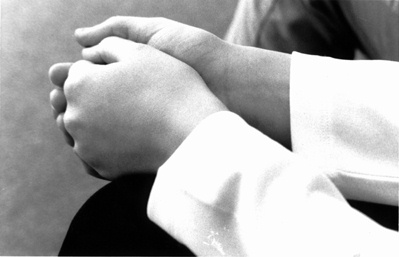All Nonfiction
- Bullying
- Books
- Academic
- Author Interviews
- Celebrity interviews
- College Articles
- College Essays
- Educator of the Year
- Heroes
- Interviews
- Memoir
- Personal Experience
- Sports
- Travel & Culture
All Opinions
- Bullying
- Current Events / Politics
- Discrimination
- Drugs / Alcohol / Smoking
- Entertainment / Celebrities
- Environment
- Love / Relationships
- Movies / Music / TV
- Pop Culture / Trends
- School / College
- Social Issues / Civics
- Spirituality / Religion
- Sports / Hobbies
All Hot Topics
- Bullying
- Community Service
- Environment
- Health
- Letters to the Editor
- Pride & Prejudice
- What Matters
- Back
Summer Guide
- Program Links
- Program Reviews
- Back
College Guide
- College Links
- College Reviews
- College Essays
- College Articles
- Back
Domestic Violence
Many women and men from all around the globe are or have been in an abusive relationship. Being in an abusive relationship changes a person. Changes the way they think and act, changes the way they live.
My mother used to be in an abusive relationship. With my father, in fact. Which is the reason why they are now divorced. She was so used to getting hurt, that once she moved on and started dating my stepdad, she flinched whenever he came near her. Although he wasn’t going to hurt her and didn’t intend to, she just assumed he was. It was very difficult for her to get accustomed to a “normal life”.
Although men are sometimes the victims, the majority of those abused are women.
Domestic Violence is when the person you love is abusing you, either physically or psychologically. Any kind of abuse is terrible considering the consequences of it. Physical can send you to the hospital, whereas; psychological can send you into deep depression, insecurity, helplessness, and feeling lonely and self-loathing. These people need help, need therapy, need a way to seek out of the abusive relationship.
The Office on Violence Against Women, part of the U.S. Department of Justice, defines domestic abuse as "a pattern of abusive behavior in any relationship that can be used by one partner to gain or maintain power and control over another intimate partner."
I quote John Gordon who wrote an article about Domestic Violence in a site called Global Issues in Context (GIC): “ I've seen women and children so badly beaten that they can barely stand. These are not Jerry Springer people, or petite blonds with big hair. These are viable human beings caught up in a cycle of abuse.” He worked with survivors of Domestic Violence and made very clear observations on them.
When a woman is in an abusive relationship, it does not only affect her. It can also affect her children or other family members. If she’s too vulnerable to stand up for herself, how is she going to be there for her children? How is she going to show her mother that she’s still the daughter she used to be, if she actually isn’t? If she thinks about this, that must be a lot of pressure on her.
The reason for why a woman or man wouldn’t leave the abuser is because the fear of abandoning it is stronger than the fear of staying. The only time they would probably leave is if the fear of staying is finally greater than the fear of leaving. I got this information from a trusted non-profit resource called helpguide.org.
In the United States, domestic violence results in about 2 million injuries and 1,300 deaths yearly, according to the U.S Centers for Disease Control and Prevention (CDC).
Up until the 1970s, domestic violence was dismissed by the criminal justice system as "a family matter." They believed that what a husband does to his wife is his private business. While some may still have such attitudes, a lot has changed in how the criminal justice system responds to reports of domestic violence.
It happens now and the people are much better than people were a couple of years ago. Yet there are still people who may believe that it’s the right thing to do. To let the person who’s being abused fix their own problem.
These people don’t understand that that would be very difficult for the victim since she has a low self-esteem and almost no hope for a way out.
Not only women and men have been in an abusive relationship. But so have teenagers. Teenagers can be either very strong about it or very weak, considering maturing and learning about peer pressure and finding their strengths.Yet some teens are very vulnerable and don’t know where to seek help. In this case, I think that maybe teens in an abusive relationship need extra help. Not only because they may be more vulnerable but also because it’s just the beginning of their lives and they have a long way to go. Teenagers even more so than adults in an abusive relationship need someone to support and speak up for them.
Not many people know what to do to help somebody in an abusive relationship.
Well, something you can do is tell the local police department that you have to report a crime. Something else is finding a psychologist for the person being abused. Another suggestion would be convincing that person to let go of their partner.
Some men take advantage of women. Either sexually, emotionally, or physically. And some women can’t stand up for themselves enough to find help. maybe whatever happens between a couple, should just be between them and they should solve their own problems. But what if they can’t? Their relationship is dysfunctional, isn’t it? Some people have no idea what to do to help, but for the love of God, don’t just sit and watch.

Similar Articles
JOIN THE DISCUSSION
This article has 0 comments.
